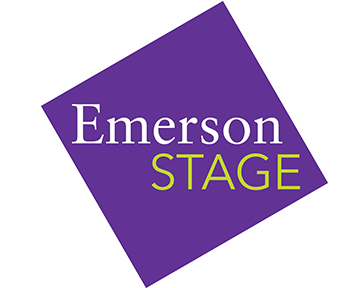Why “Lizzie Stranton” Shows the Best of Emerson
Hello Readers!
See below for a take on Lizzie Stranton‘s applicability to our lives, written by Assistant Dramaturg Travis Amiel. Lizzie Stranton runs from February 4-7, so be sure to purchase tickets online.
Why Lizzie Stranton Shows the Best of Emerson
In Lydia Diamond’s Lizzie Stranton we are faced with a parallel 2016. In this universe, who runs the world? Men! …but it’s girls (well women really) who take agency. Their goal: end the war that men have started and refuse to end. In this reimagining of Lysistrata (the Greek comedy you might have read for class) abstinence is the point of attack, but the women on stage don’t see the world with simple, clear solutions. Like most Emersonians, the women of Lizzie Stranton are critical in how they’re going to tackle the most problematic element of modern society: the patriarchy. And they refuse to be stereotyped and exoticized, demanding inclusivity (requiring it in fact) in their conquest.
Full disclosure: I am a cisgender, white, gay man and therefore not quite the face of diversity. The character most similar to me in the play is also one of the most problematic. But this play represents the Inclusive Excellence that Emerson College strives for. I want to be in a school where “diverse” and “accepting” aren’t words thrown around to describe us (like “very important” or “great college” ), but are linked to real efforts. Lizzie Stranton is one of those efforts. If you haven’t read the “Summary Report of Initiatives to Increase Cultural Competency Among Faculty and Students“, take a look. The title character says late in the play, “we, individuals, are still burdened by the misguided assumptions and beliefs put forth in an earlier time.” This sounds like the voice of many young people, demanding that we set new standards for our society, in which we obliterate systems of oppression.
Watching a run-through of the play, so many lines sparked my fingers to snap in support, as my lips and teeth instinctively whispered “yaaaas”. This was because I felt like I was watching these warriors against oppression, speak about the issues I too feel are being overlooked. When the character Azima brought up the need to also address our world’s environmental devastation, I thought of the article in the Beacon, reporting on Emerson’s recent trash audit. Our environmental impact as an institution has an impact worldwide.Some see climate change as the next genocide,unless we do something.
There’s a moment when one character asks the ensemble onstage to check their privilege, and it’s great. The audience stops seeing these characters as who they present themselves as, but in a greater context of who they actually are.
It’s not just the content that makes this production important, Lizzie Stranton is a new play, and Emerson Stage’s production is the second full mounting of the play since it was commissioned by Boston University in 2008. Everyone involved with the play gets experience handling script revisions from a playwright who this week is opening a new play, Smart People,off-Broadway.
Lee Mikeska Gardner, Artistic Director of The Nora Theatre Company, based in Cambridge, directs the play, giving students the experience of working with a local professional director.
And lastly, this is a female-driven play (a rarity), and its addition to the theatrical cannon means that colleges, community theatres, maybe even high schools, have a new option when working with female-heavy departments. Already Emerson Stage’s production has had an impact on the development of Lizzie Stranton, a new character has appeared and new issues have been raised.
Check out Lizzie Stranton February 4th – 7th and see your body, your issues, and your school on stage. Tickets are availible at AEstages.org or by visiting the Culter Majestic or Paramount Box Offices.


